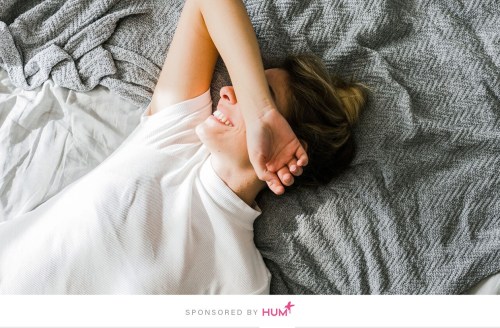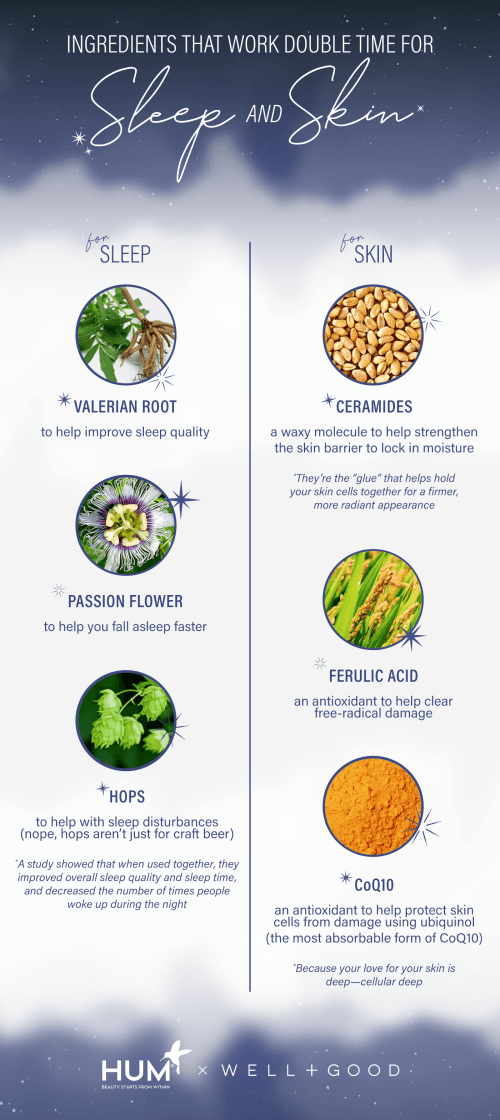advertisement
Here’s how your sleep struggles are affecting your skin—and the ingredients that can help
When shopping for sleep supplements, this RD recommends looking for one with ingredients that support quality sleep and quality skin.

If you’re one of the 50 to 70 million Americans who has trouble sleeping at night (that’s 20 percent of the population, so the odds are pretty good), you know firsthand the effects of not getting enough shuteye—you know, like having no energy and becoming BFFs with all sources of caffeine.
But the side effect you might be overlooking is how your sleep schedule can have a direct impact on your skin (and not just because you’re usually too tired to wash your face before bed). Research has shown that even one night of poor sleep can cause increased wrinkles and fines lines.
“Optimal sleep is a critical part of healthy-looking skin,” says Sarah Greenfield, RD and education director at HUM Nutrition. “While you are sleeping, your body is repairing damaged cells and balancing hormones. When you aren’t sleeping well, these processes are not working as effectively. When you sleep better, your body is able to support skin-cell turnover and optimize all pathways that promote healthy skin.”
But how, exactly, are you supposed to improve your sleep when no amount of counting sheep has worked in the past? According Greenfield, it’s all about tapping the right ingredients that are primed to work together.
In the sleep supplements department, Greenfield recommends looking for one that can work double time—helping you fall asleep but also supporting an “I woke up like this” glow. To tap into this sleep-skin connection, HUM Nutrition created Mighty Night, which when taken consistently results in smooth, plump skin and helps to prevent wrinkles from forming and deepening (think of it like a preventative filler).
It relies on valerian root, passion flower, and hops to help you relax, as well as ceramides, ferulic acid, and ubiquinol to help give your skin an overnight assist. (Ubiqui-what? Don’t worry, more on these below.)
Valerian root, passion flower, and hops are herbs that have been touted for hundreds of years to help people with sleep troubles, but in 2013 the trio was put to the test in a clinical study that found that the combination could potentially be even more effective at improving sleep quality and helping people stay asleep than prescription sedatives.
If saving time with a skin-care routine you can literally do in your sleep isn’t enough to pique your interest, listen to this: In a 60-day, in-house study on Mighty Night, 96 percent of people saw improvement in their sleep quality and 92 percent noticed improvements in their skin. And you thought you were good at multitasking.
Scroll down for more intel on these workhorse ingredients you’ll want to look for in your sleep supplements.

Sponsored by HUM Nutrition
Top photo: Stocksy/Lumina
Sign Up for Our Daily Newsletter
Get all the latest in wellness, trends, food, fitness, beauty, and more delivered right to your inbox.
Got it, you've been added to our email list.




